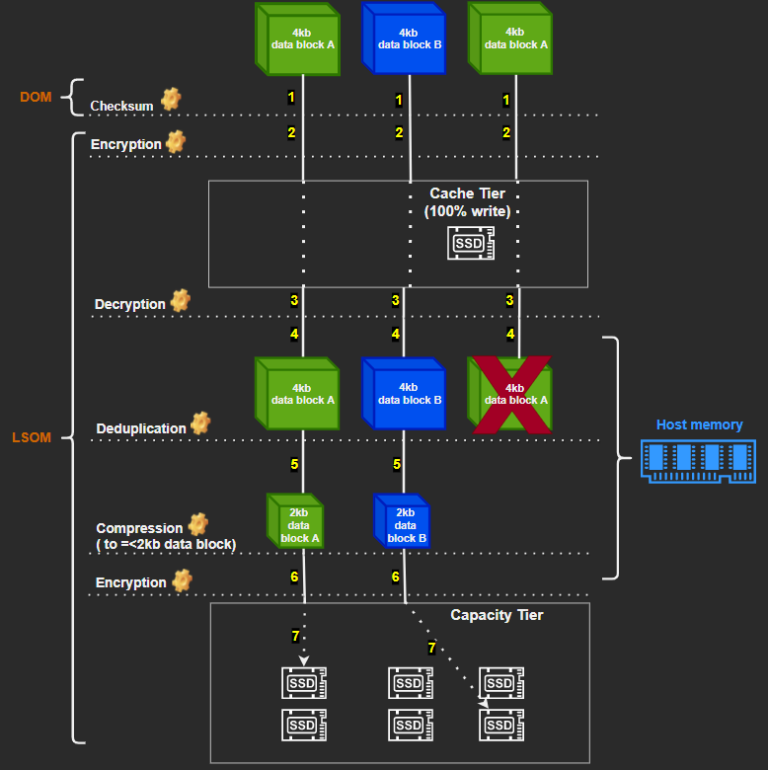Considering a career in Information Technology (IT) but unsure of what it entails?
This article offers a comprehensive overview of what an IT professional does, their roles and responsibilities, required skills, how to become one, and the various career opportunities in this dynamic industry.
From network administration to cybersecurity and software development, there are many paths to explore in IT. Let’s dive in and discover what it takes to succeed as an IT professional.
Key Takeaways:
What Is an IT Professional?
An IT professional is an individual with expertise in information technology, specializing in various aspects of technology solutions and services.
IT professionals play a crucial role in ensuring the smooth functioning of an organization’s technological infrastructure, ranging from software and hardware setups to network security protocols. Their responsibilities encompass analyzing complex systems, identifying potential vulnerabilities, and preemptively addressing cybersecurity threats.
- IT professionals are at the forefront of driving digital transformation across industries by implementing cutting-edge technologies such as AI, cloud computing, and IoT to enhance operational efficiency and deliver seamless user experiences.
- The ever-evolving nature of the IT field necessitates continuous learning and adaptation to remain abreast of emerging trends and stay competitive in the dynamic IT landscape.
What Are the Roles and Responsibilities of an IT Professional?
The roles and responsibilities of an IT professional encompass network administration, technical support, database management, cybersecurity, software development, and project management.
Network administration involves managing the day-to-day operations of an organization’s network infrastructure, ensuring connectivity and smooth data flow. Technical support requires troubleshooting hardware and software issues, assisting end-users, and providing solutions to IT-related problems. Database management entails overseeing databases, ensuring data integrity, security, and efficiency. Cybersecurity focuses on protecting systems and data from cyber threats, implementing security measures, and responding to incidents.
Software development involves designing, coding, testing, and maintaining software applications to meet specific business needs. Project management entails planning, organizing, and overseeing IT projects from initiation to completion, ensuring timely delivery and within budget constraints.
Network Administration
Network administration is a crucial role for IT professionals involved in managing and maintaining organizational networks, ensuring connectivity, security, and optimal performance.
Network administrators are responsible for setting up and configuring network devices such as routers, switches, and firewalls to establish a functional network infrastructure. They meticulously monitor network traffic, bandwidth usage, and system performance to identify any potential issues that could impede seamless communication.
Network administrators play a pivotal role in troubleshooting network problems, conducting regular system upgrades, and implementing security protocols to safeguard the network against cyber threats and unauthorized access. By effectively managing network assets and protocols, they ensure that data transfer within the organization is smooth and secure.
Technical Support
Technical support is a vital responsibility for IT professionals, involving the provision of assistance, troubleshooting guidance, and resolution of technical issues for end-users and organizations.
Effective technical support plays a crucial role in maintaining the functionality and efficiency of IT systems. The ability to communicate complex technical information in a clear and concise manner is essential in guiding users through problem-solving steps. Moreover, active listening skills are pivotal in understanding and diagnosing user issues accurately. Technical support specialists must possess a strong analytical mindset to identify root causes of problems and implement effective solutions promptly. Proper documentation of resolved issues and user interactions also aids in building a comprehensive knowledge base for future reference.
Database Management
Database management is a critical task for IT professionals, focusing on organizing, storing, and securing data within databases to ensure efficient data retrieval and management.
Database managers play a crucial role in overseeing the structure and layout of databases, optimizing them for quick access to information. They are responsible for implementing security measures such as encryption, user authentication, and access controls to safeguard sensitive data against unauthorized access or breaches.
Database managers develop robust backup strategies to prevent data loss due to system failures, human errors, or cyber attacks. They regularly perform data backups and test data recovery processes to maintain uninterrupted access to critical information.
Cybersecurity
Cybersecurity is a paramount concern for IT professionals, involving the protection of digital assets, networks, and systems from cyber threats, data breaches, and malicious attacks.
It requires an understanding of various threat detection mechanisms to identify potential vulnerabilities in the digital infrastructure. Risk mitigation strategies play a crucial role in proactively addressing security gaps and preventing cyber incidents. Establishing robust security protocols, such as encryption, multi-factor authentication, and access controls, is essential to safeguard sensitive information and maintain data integrity.
Having well-defined incident response strategies is imperative to effectively manage and contain any security breaches or cyber attacks. The expertise required in cybersecurity encompasses a wide range of technical skills and the ability to adapt to the ever-evolving landscape of cyber threats and vulnerabilities.
Software Development
Software development is a core competency for IT professionals, encompassing the creation, testing, and maintenance of software applications to address specific business or user needs.
Driven by the ever-evolving technology landscape, software developers play a crucial role in leveraging various programming languages, such as Java, Python, or C++, to bring innovative solutions to life. They follow different development methodologies like Agile, Scrum, or Waterfall to streamline the software development lifecycle and ensure efficient project delivery. Quality assurance practices, including unit testing, integration testing, and code reviews, are integrated into their work to guarantee the reliability and functionality of the developed software.
Project Management
Project management is a key responsibility for IT professionals, involving the planning, execution, and monitoring of IT projects to deliver solutions within scope, budget, and timeline.
Effective project management often entails navigating several methodologies such as Agile, Scrum, Waterfall, or a hybrid approach to suit the project’s unique requirements. Utilizing project management tools like Gantt charts, Kanban boards, and collaboration platforms streamline tasks allocation, progress tracking, and team communication for enhanced productivity.
What Skills Are Required for an IT Professional?
To excel as an IT professional, one needs technical skills, problem-solving abilities, effective communication, time management proficiency, and adaptability to meet the dynamic demands of the IT industry.
Technical skills are the backbone of an IT professional, serving as the foundation upon which all other competencies are built. These skills encompass a diverse range, including programming languages, network management, cybersecurity, and cloud computing. For instance, a software developer requires expertise in languages like Java or Python, while a cybersecurity analyst must possess knowledge of threat intelligence and risk assessment.
Problem-solving abilities are equally crucial in IT roles. Professionals must possess a logical and analytical mindset to identify, troubleshoot, and resolve complex technical issues efficiently. Whether it’s debugging a software glitch or optimizing network performance, the ability to think critically and creatively is critical.
Effective communication skills are vital in bridging the gap between technical expertise and business objectives. IT professionals often need to convey complex concepts to non-technical stakeholders, collaborate with cross-functional teams, and provide clear documentation. Clear and concise communication enhances teamwork, streamlines project delivery, and fosters innovation.
Technical Skills
Technical skills are fundamental for IT professionals, encompassing expertise in programming languages, network configurations, system administration, and software development tools.
Along with these core skills, IT professionals often need proficiency in cloud computing, cybersecurity, database management, and artificial intelligence. Understanding a diverse range of technologies allows individuals in the IT field to adapt to rapidly changing environments and emerging trends. With deep technical knowledge, professionals can effectively address complex challenges and develop innovative solutions. This versatility also enables them to collaborate across various departments and industries, serving as valuable assets to organizations seeking to leverage technology for competitive advantage.
Problem-Solving Skills
Problem-solving skills are essential for IT professionals, enabling them to analyze issues, identify solutions, and implement effective troubleshooting strategies to resolve technical challenges.
In the fast-paced world of information technology, having the ability to think critically and approach problems analytically is paramount. IT professionals encounter a myriad of issues ranging from software bugs to network failures, requiring them to think quickly and rationally to find innovative solutions. By honing their problem-solving skills, IT experts can not only fix immediate issues but also lay the groundwork for more efficient systems and processes. This not only enhances their own abilities but also contributes to the overall productivity and success of the organization they serve.
Communication Skills
Communication skills are critical for IT professionals, facilitating effective interaction with colleagues, clients, and stakeholders to convey technical information, address concerns, and collaborate on projects.
In the fast-paced world of Information Technology, the ability to translate technical jargon into layman’s terms is invaluable. It’s not just about speaking the same language; it’s about ensuring that everyone involved in a project understands the objectives, requirements, and potential hurdles. Strong communication skills enable IT teams to foster collaboration and teamwork by encouraging open dialogue, sharing insights, and collectively solving problems.
Time Management Skills
Time management skills are crucial for IT professionals to prioritize tasks, meet deadlines, and efficiently allocate resources to accomplish project milestones and objectives.
Effective time management not only ensures that projects are completed on time but also plays a significant role in maintaining a healthy work-life balance. IT professionals often juggle numerous responsibilities simultaneously, making it essential to organize and schedule tasks efficiently. By utilizing tools such as task management software and creating detailed timelines, individuals in IT roles can streamline their workflow, reduce stress levels, and maximize efficiency. Proactive planning, setting clear goals, and delegating tasks when necessary are all strategies that successful IT professionals employ to optimize their time and deliver high-quality results.
Adaptability and Flexibility
Adaptability and flexibility are key attributes for IT professionals, enabling them to embrace change, learn new technologies, and pivot strategies to meet evolving industry demands.
In the fast-paced world of technology, where advancements occur at lightning speed, the ability to quickly adapt and remain flexible is crucial for success. IT professionals must constantly be on their toes, ready to switch gears at a moment’s notice. This fluidity allows them to stay ahead of the curve and effectively navigate the ever-changing IT landscape. Whether it’s mastering a new programming language, integrating cutting-edge software, or implementing innovative solutions, adaptability enables IT experts to thrive in dynamic environments.
How to Become an IT Professional?
Becoming an IT professional involves acquiring relevant education, certifications, gaining practical experience, networking with industry professionals, and staying updated on emerging trends and technologies.
One of the primary steps in pursuing a career in IT is to focus on your educational foundation. This typically involves obtaining a degree in a relevant field such as Computer Science, Information Technology, or a related discipline. Additionally, certifications play a crucial role in demonstrating your expertise in specific areas of IT, with options ranging from vendor-specific certifications to more generalized credentials like CompTIA A+ or Cisco CCNA.
Practical experience is also essential in the IT industry. Internships, co-op programs, or entry-level positions can provide valuable hands-on experience that complements your academic knowledge. Building a strong network within the IT community is equally important. Attending industry events, joining professional organizations, and leveraging online platforms can help you connect with other professionals, explore job opportunities, and stay informed about industry developments.
Education and Certifications
Education and certifications play a pivotal role in the journey to becoming an IT professional, providing foundational knowledge, specialized skills, and industry-recognized credentials.
Formal education equips individuals with a comprehensive understanding of computer science principles, programming languages, network security, and database management. Pursuing a Bachelor’s degree in Computer Science or Information Technology can lay a strong groundwork for a diverse range of IT roles.
Specialized certifications such as CompTIA A+ for entry-level technical support or Cisco Certified Network Associate (CCNA) for networking professionals add credibility. These credentials not only validate expertise but also open doors to advanced career opportunities in the ever-evolving realm of information technology.
Gain Practical Experience
Acquiring practical experience is essential for aspiring IT professionals to apply theoretical knowledge, develop hands-on skills, and gain industry exposure through internships, projects, and job roles.
Hands-on experience plays a pivotal role in shaping a well-rounded IT professional. Internships provide a real-world platform to test classroom learning, enabling individuals to troubleshoot real issues and collaborate with industry experts.
Engaging in projects allows for practical application of technical expertise, fostering problem-solving abilities and innovative thinking. Entry-level positions serve as stepping stones towards career growth, offering opportunities to specialize, network with professionals, and enhance one’s understanding of various IT domains.
Network and Build Connections
Networking and building industry connections are crucial for aspiring IT professionals to expand their opportunities, seek mentorship, and stay informed about job openings, industry trends, and skill requirements.
Engaging in networking activities opens doors to a plethora of possibilities, from job opportunities to invaluable insights into emerging technologies. By actively connecting with seasoned professionals, individuals can gain mentorship that acts as a guiding light on their career journey. Attending industry events not only allows for face-to-face interactions but also facilitates knowledge sharing and fosters relationships in the tech community. Leveraging online platforms like LinkedIn provides a digital space to showcase expertise, seek advice, and forge connections globally.
Stay Updated on Industry Trends
Staying informed about emerging industry trends, technologies, and best practices is essential for IT professionals to remain competitive, adapt to market demands, and enhance their skill sets.
Continuous learning and professional development are critical aspects of a successful career in the ever-evolving IT industry. Keeping up with the rapid pace of technological advancements requires a proactive approach to education and skill-building. By regularly upskilling and reskilling, IT professionals can not only stay relevant in the job market but also unlock new opportunities for career growth and advancement.
What Are the Career Opportunities for IT Professionals?
Career opportunities for IT professionals include roles such as IT Support Specialist, Network Administrator, Cybersecurity Analyst, Software Developer, and IT Project Manager, each offering diverse challenges and growth prospects.
IT Support Specialists are responsible for providing technical assistance and resolving IT issues for organizations and end-users. They need to have strong problem-solving skills, excellent communication abilities, and a customer-centric approach.
Network Administrators manage and maintain an organization’s network infrastructure, ensuring smooth communication and data flow. Cybersecurity Analysts play a crucial role in safeguarding sensitive data and systems from cyber threats, requiring a deep understanding of security protocols and proactive risk mitigation strategies.
Software Developers are tasked with designing, coding, and testing software applications to meet specific business requirements. This role demands strong programming skills, creativity, and adaptability to evolving technologies. IT Project Managers oversee the planning, execution, and completion of IT projects, coordinating resources, timelines, and deliverables to ensure successful outcomes.
The demand for IT professionals is on the rise in today’s job market, fueled by digital transformation initiatives across industries. With technology becoming increasingly integrated into business operations, the need for skilled IT specialists continues to grow. IT career paths offer ample opportunities for advancement, with the potential to specialize in emerging fields such as cloud computing, artificial intelligence, and data analytics. Continuous learning and staying abreast of industry trends are essential for IT professionals to stay competitive and seize new career prospects.”
IT Support Specialist
An IT Support Specialist is responsible for providing technical assistance, troubleshooting hardware and software issues, and resolving IT-related problems for end-users and organizations.
These professionals play a crucial role in ensuring smooth IT operations by responding to user inquiries, conducting diagnostics, and implementing solutions to enhance productivity. With strong problem-solving abilities and solid technical knowledge, IT Support Specialists offer timely resolutions to minimize downtime and maintain user satisfaction.
- Key skills include proficiency in various operating systems, software applications, and hardware components, as well as excellent communication to convey complex technical information in an understandable manner.
- Customer service skills are paramount, as IT Support Specialists need to interact with users of varying technical backgrounds to address issues efficiently and provide a positive experience.
Network Administrator
A Network Administrator oversees the configuration, maintenance, and security of organizational networks, ensuring smooth connectivity, data transfer, and network performance.
Network Administrators play a crucial role in designing network infrastructures, analyzing network data traffic patterns, and troubleshooting network issues swiftly. They possess a deep understanding of various networking technologies, hardware, and software, enabling them to make informed decisions to enhance network efficiency.
Implementing security protocols to safeguard data integrity and protect against cyber threats is a primary responsibility. They collaborate with IT teams and stakeholders to optimize network operations and align them with organizational objectives.
Cybersecurity Analyst
A Cybersecurity Analyst focuses on safeguarding digital assets, identifying security vulnerabilities, and implementing measures to protect networks, systems, and data from cyber threats and attacks.
In the realm of cybersecurity, these professionals are instrumental in fortifying defenses against evolving threats. Their primary responsibility encompasses threat detection, where they utilize advanced tools and techniques to monitor network activity for any signs of malicious behavior. Cybersecurity Analysts conduct vulnerability assessments to proactively identify weaknesses in the security infrastructure that could be exploited by cybercriminals.
When a security breach occurs, these analysts are at the forefront of incident response, swiftly addressing and mitigating the impact of the breach to minimize data loss and disruption. They play a vital role in devising comprehensive security enhancement strategies to strengthen the organization’s security posture and ensure data integrity.
Software Developer
A Software Developer designs, develops, and maintains software applications to address specific business needs, user requirements, and technological innovations.
With an extensive knowledge of programming languages such as Java, Python, C++, and more, Software Developers possess the expertise to write code that powers various applications across different platforms. They utilize development tools like IDEs (Integrated Development Environments), version control systems like Git, and debugging tools to ensure smooth functionality and efficient performance of the software they create.
Along with technical prowess, Software Developers also need to have strong problem-solving abilities. They must analyze user feedback, troubleshoot issues, and continuously enhance software functionality based on evolving user needs and market trends.
IT Project Manager
An IT Project Manager leads and manages IT projects, overseeing planning, execution, and delivery to ensure project objectives are met within scope, budget, and timeline.
Being a key facilitator between technical teams and business stakeholders, the IT Project Manager plays a crucial role in defining project scope, creating detailed project plans, and allocating resources efficiently. Their expertise in risk management helps to identify and mitigate potential roadblocks before they escalate, safeguarding the project timeline and budget.
Effective stakeholder communication is another vital aspect of an IT Project Manager’s role, ensuring alignment of expectations, addressing concerns, and fostering collaboration among all involved parties. The ability to cultivate a motivated and cohesive team environment through strong leadership skills is essential for driving project success.
Frequently Asked Questions
What are IT professional guides?
IT professional guides are resources and tools designed to provide practical information and advice to individuals working in the field of information technology. They cover a wide range of topics related to IT, including best practices, industry trends, and career development.
Why are IT professional guides important?
IT professional guides are important because they help individuals stay updated on the ever-evolving world of technology. They provide valuable insights and advice from industry experts, which can help IT professionals improve their skills, stay current with industry trends, and advance their careers.
Where can I find IT professional guides?
IT professional guides can be found in various forms, including online resources, books, workshops, seminars, and conferences. Many companies also offer internal training programs and resources for their employees to help them stay current in their IT roles.
How can IT professional guides benefit my career?
IT professional guides can benefit your career by providing you with valuable knowledge and skills that can help you stand out in the competitive IT job market. By staying updated on the latest industry trends and best practices, you can enhance your job performance and increase your chances of career advancement.
Are there different types of IT professional guides?
Yes, there are various types of IT professional guides, such as technical guides, career guides, and industry-specific guides. Technical guides focus on specific skills and technologies, while career guides provide insights and advice on navigating the IT job market. Industry-specific guides cater to the unique needs and challenges of different sectors, such as healthcare or finance.
Can IT professional guides be used by both beginners and experienced professionals?
Yes, IT professional guides can be beneficial for individuals at all levels of experience in the IT field. Beginners can use them to learn new skills and get started in their careers, while experienced professionals can use them to stay updated on the latest trends and advancements in the industry.





